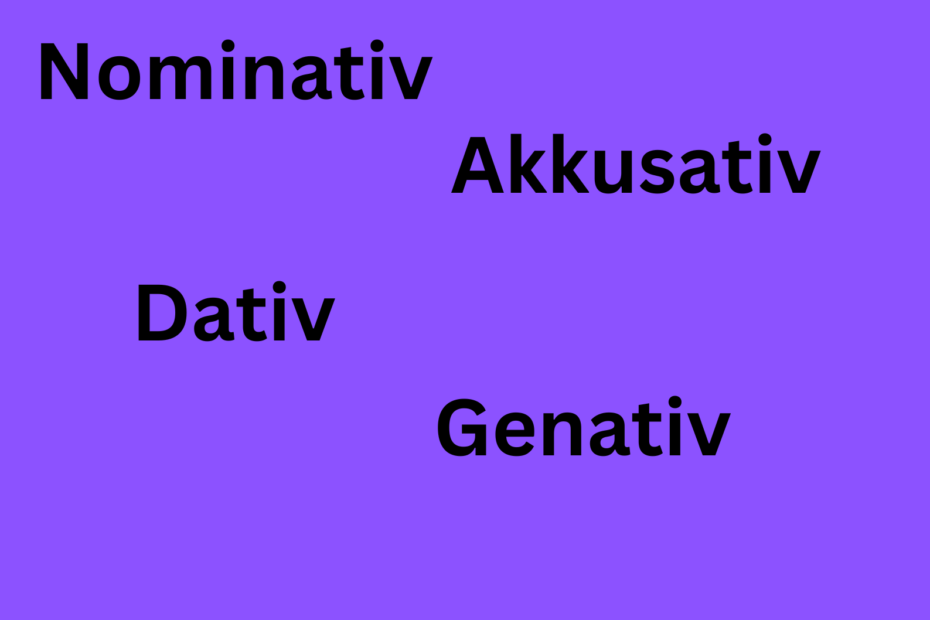There are four cases in the German language:
Nominative, accusative, dative and genitive.
The cases are an important part of German grammar as they are responsible for the endings of adjectives, indefinite articles and when to use which personal pronoun.
Nominativ
Subject of the sentence / verb
Person or thing doing the action.
Who (wer) or What (was) is doing something?
| English | German |
| The man eats an apple | Der Mann isst einen Apfel |
Who is eating an apple?
Der Mann is the Nominative part (subject) of the sentence
Akkusativ
The direct object of the verb – Person, animal or thing which is directly affected by the action of the verb.
The questions for the accusative are “whom” (“wen”) or “what” (“was”)
The accusative is also used after certain prepositions ( bis, für, gegen, ohne, um, durch), see list below
Is used after specific verbs and when we have 2 people/things in a sentence
| English | German |
| The man eats an apple | Der Mann isst einen Apfel |
What does the man eat? – Einen Apfel
Einen Apfel is the Accusative part (object) of the sentence
Dativ
Indirect object
Person or thing indirectly impacted by the action. In English this is often indicated by the words “to” or “for.”
In most situations you can also ask to whom (“wem”) or for whom.
The dative case is also used after certain prepositions, see list below
Not all sentences have Dative part.
| English | German |
| I give the woman a book | Ich gebe der Frau ein Buch |
To Whom is the book given? – Der Frau
Der Frau is Dative.
Frau is usually Die Frau, but in Dativ it becomes der Frau. See Articles
Genitive / Genativ
Shows possession. Das Auto meines Bruders. My brother’s car (the car of my brother). In English we use “of” or ” ‘s”.
The genitive case is used to show, that something belongs to someone. You’re able to ask: Whose…? The genitive case is also used after certain prepositions


